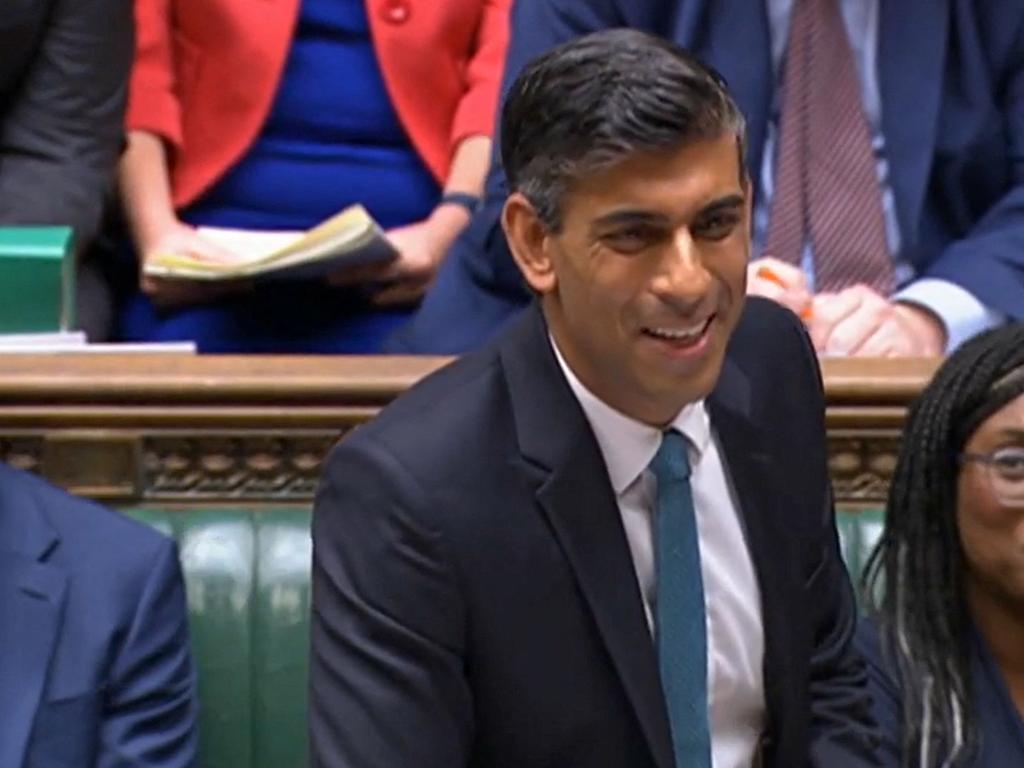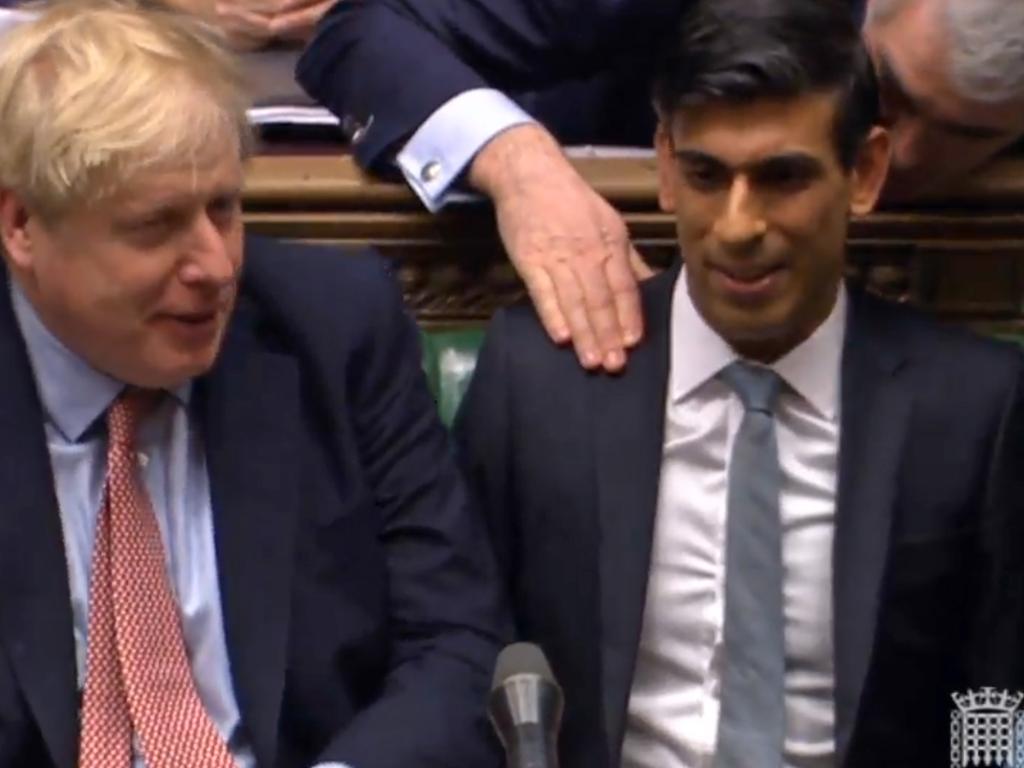Like our Libs, the Rishi Sunak’s Tories need to think


Calming those nerves requires economic policies that are not only sensible but predictable and transparent. Liz Truss’s fiscal decisions may have been defensible; the way they were presented – without credible costings and a strategy for managing their consequences – was not.
It was therefore unsurprising that markets moved against the pound as brutally as they had in the balance of payments crisis of 1976, when Britain was forced to secure a loan from the International Monetary Fund. The challenge for the new government is to show that it can do better.
Inevitably, hard choices are involved. With the inflation rate higher than at any time since 1981, monetary policy is likely to tighten, pushing up interest rates.
However, public debt has risen from 30 per cent of gross domestic product at the beginning of the 2000s to nearly 85 per cent today; to make things worse, households have also become more much indebted, as well as being more heavily exposed to overblown property prices.
As a result, steeply higher interest rates would not only inflict great fiscal pain by boosting the cost of servicing public debt; they would also savage household budgets and balance sheets, reducing consumer spending and precipitating a potentially severe recession.
Moreover, with investment levels already persistently low, further interest rate rises are likely to worsen the investment drought that has mired Britain in what Nicholas Crafts, the country’s leading economic historian, has diagnosed as the most prolonged productivity slump in 180 years.
Cutting the budget deficit would take some of the pressure off monetary policy, reducing those risks.
But the scope to slash public spending is limited both by the attempt to cushion families from the transient, war-induced, component of energy price hikes and by public expectations that the shortfalls the pandemic exposed in the health and aged-care systems will be promptly addressed.
As for cancelling increases in the defence budget, it seems starkly at odds with the demands of the moment.
It is easy to say that Margaret Thatcher would have taken the axe to spending and brought down government debt. The reality is that both the ratio of public expenditure to GDP and that of government debt to GDP increased during her first term, and fell significantly only when growth accelerated in the late 1980s.
But even putting that aside, there was, when Thatcher came to office, plenty of low-hanging fruit, ranging from poorly targeted social spending to inefficient, massively subsidised, public enterprises that could be privatised or shut down. Despite the slack that has crept in over recent years, savings of that magnitude are now far harder to find.
That makes the politics more painful but also more crucial. Indeed, it is only by preventing the Tories from collapsing, once again, into Stygian factionalism that Sunak can hope to succeed.
There are some respects in which that seems a more straightforward task than that which many earlier Conservative leaders faced. As Maurice Cowling, the great British political historian, pointed out long ago, it is in the nature of strong two-party systems that the differences within parties are typically as large as those between them.
Because they are the primary points of entry into mainstream politics, Cowling wrote, each party inevitably attracts currents that – having nowhere else to go – merge into a “whirlpool of conflicting attitudes, purposes, programmes and intentions”.
At best, the parties that process creates are not organisations of people sharing the same opinions but of people concealing different views; at worst, they are a Hobbesian battlefield in which radically contradictory stances tear the party to shreds.
The stoush pitting Brexiters against Remainers that undid Theresa May was arguably of that kind, mobilising sharply contrasting world views. But neither Boris Johnson nor Truss were ousted because of their ideas. Rather, it was antipathy, self-interest and mutual contempt that underpinned their downfall, aggravated by perceptions of Johnson’s duplicity and Truss’s inadequacy.
To say that is not to deny that Tories differ on many issues; however, even on Brexit, disagreements now centre on its final form rather than on the decision itself.
There is nothing remotely equivalent to the deep splits between free-traders and empire protectionists, Keynesians and monetarists, corporatists and neo-liberals, Joiners, Brexiters and Remainers, which successively racked the Conservative party over the course of its modern history.
To that extent, it is not grand ideological choices that will determine Sunak’s fate but his ability to project competence and manage a large, panicked backbench, not least by convincing Tory MPs that while politics is complex, failure is simple: continue the bloodletting and a wipe-out is a sure thing.
Whether that threat will suffice to restore a semblance of order is obviously hard to predict. Assuming it does, a Sunak government is likely to involve a degree of blandness, combined with a cautious, middle-of-the-road economic policy.
Coming after chaos, and amid global uncertainty, that is no bad thing.
But if the Tories have been the most successful political party in democratic history – holding office, often with crushing majorities, for 72 of the 104 years since the end of World War I – it has at least partly been because they so fiercely and continuously debated how a party that calls itself conservative could address the ever-changing challenges of the age.
As EHH Green brilliantly showed in his Ideologies of Conservatism (2002), it was by relying on the ideas those debates generated that Conservative politicians could project recognisably conservative solutions to an increasingly diverse range of supporters, adapting themselves, in each generation, to the spirit of the times.
In the end, politics is about argument, and arguments are about ideas. Today’s problems are, if anything, exceptionally knotty; compounding those problems for the Tories, as for the Liberals in Australia, is the fact their social democratic rivals have repositioned themselves towards the political centre and are making durable inroads into traditional centre-right constituencies.
The claim Thatcher famously made that “there is no alternative” to the approach she pursued therefore has less and less sway – but on issues such as the future of health and aged care, climate change and energy policies, the centre-right is either silent or profoundly muddled.
Politics will always involve a large element of pointscoring and street-fighting; now, however, it’s time for the centre-right to show it can also think.





Whether Rishi Sunak can bring some stability to Britain and to the Conservative Party remains to be seen. It is absolutely clear, however, that faced with an increasingly threatening world environment, global financial markets are more jittery and less forgiving than ever.